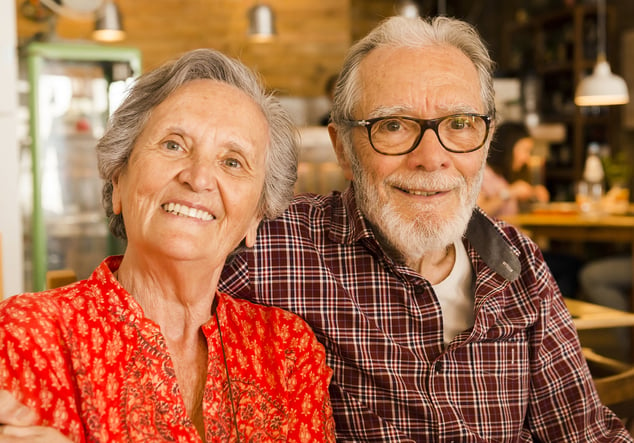
The vast majority of seniors have a strong desire to maintain their independence. And with good reason: Being independent gives older adults a sense of purpose which in turn boosts their quality of life. Here’s a closer look at why senior independence matters, along with how to support independence in aging loved ones.
Supporting Independence in Aging Loved Ones
As anyone who’s ever interacted with a willful toddler well knows, the desire to be independent starts at an early age. And while it can be frustrating to let a child do something for themselves that could be done faster or easier by you, nurturing their independence leads to many benefits, including greater confidence and self-esteem, less reliance on others, and a sense of freedom and accomplishment.
As people progress through life, they naturally become more independent and derive ongoing benefits along the way. By the time seniors reach their golden years, they’re accustomed to having control over all aspects of their life. As the independence imperative does not change, the shift back to needing assistance — often due to age-related physical or cognitive declines — can be difficult to accept.
The good news? There are some things people can do for their aging loved ones to help them maintain a critical sense of control over their lives. This includes supporting their continued participation in regular social activities and events; involving them in day-to-day household activities, such as shopping and cleaning; encouraging them to stay strong through physical and mental exercise; and safety-proofing their living environments to prevent debilitating accidents and the life-changing injuries that accompany them.
The Independence Imperative & Senior Living
Despite best efforts, loss of independence can be an inevitable part of the aging process, and there may be no bigger threat to a senior’s sense of independence than the issue of housing.
When seniors consider their life goals, where they’ll live is usually a topic that arises. Remaining in a familiar home setting is often at the top of the list. This is not always possible, however — especially when changes to health and mobility comprise an individual’s ability to conduct daily living activities and overall wellness.
Plus, seniors’ reasons for aging in place are not always accurate. For example, while many older adults want to remain in their homes to stay connected with family and friends members, the reality is that many seniors who live at home often feel isolated and lonely. Seniors may also think they can’t afford the move to a personal care community without factoring in the costs of aging in place, such as home modifications and in-home care.
Unfortunately, many people mistakenly equate living on their own with being independent, which can lead to an unsafe and isolating decision to remain in the family home. But it doesn’t have to be one or the other when it comes to independence and senior living. In fact, it’s possible for seniors to have both.
The challenge? Helping aging loved ones understand that a move to a senior living community doesn’t mean giving up their autonomy. You can help mitigate any concerns your parent or spouse may have about senior living by involving them in the decision-making process. This begins with having a loose conversation about senior living and their feelings toward it. The less aging loved ones feel that the decision has already been made for them, the more open they’re likely to be toward the prospect of a move.
Additionally, many stereotypes exist about senior living. Researching senior living communities together is a great way to correct these misconceptions while visiting senior communities with aging loved ones can help them see for themselves how the move to a vibrant community with robust programming and desirable amenities can actually enhance their lives.
Lastly, patience is critical. Unless your aging loved one’s care needs are critical, don’t push the issue. That being said, keep in mind that demand for high-quality senior living is high, so if you or your aging loved one have your hearts set on a particular community, a proactive approach may be the best way to avoid being forced into a less-than-desirable situation in the future if/when changes occur to your aging loved one’s ability to care for themselves.
One last thing to keep in mind about independence? It’s ultimately less about a particular place and more about a state of being. For many older adults and the people who love them, the move to a personal care community is a best-of-both-worlds solution that supports positive aging.












